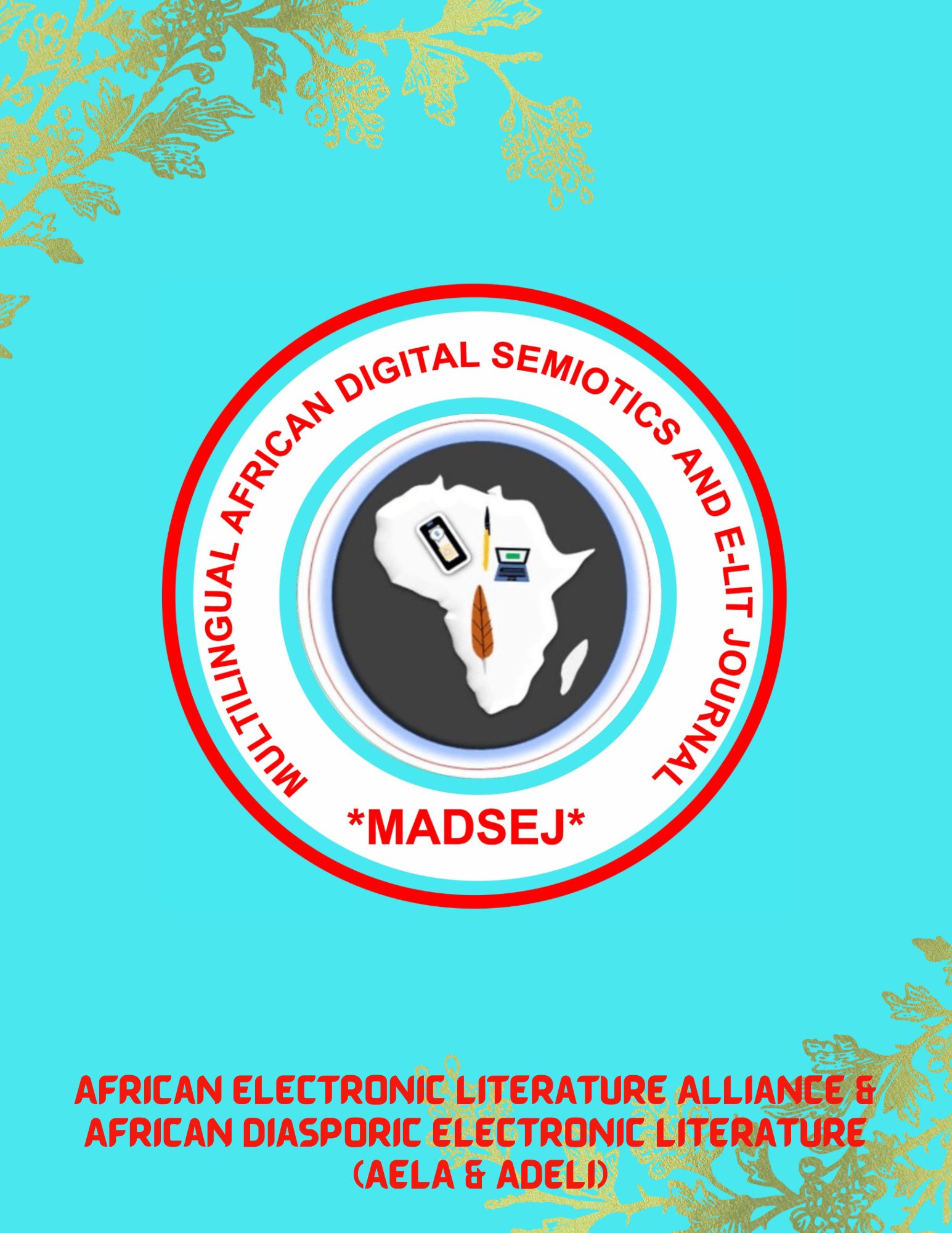Digital Resistance: Electronic Literature as Counter-Market Practice
Keywords:
Electronic literature, Digital Humanities, Neoliberalism, Digital Capitalism, Literary ProductionAbstract
This study investigates the emergence of electronic literature as a counter-market practice within contemporary digital culture, examining how digital literary works establish resistant practices while operating within neoliberal market structures. The research demonstrates how digital literary innovation establishes new value paradigms that challenge market-driven literary production through critically analyzing electronic literary works. This research advances scholarly understanding of cultural production under digital capitalism by demonstrating how electronic literature establishes creative practices that maintain critical independence while acknowledging their embeddedness within broader economic structures. The paper presents new theoretical possibilities for conceptualizing literary value and political engagement within an increasingly platform-mediated cultural landscape.
Downloads
References
Benharrousse, Rachid. “Cross-Reading of Contemporary African Literature through Award-Winning Novels.” Afrique(s) En Mouvement, no. 7, vol. 1, 2024, pp. 13–16. https://doi.org/10.3917/aem.007.0013.
Blummer, Barbara. “Opportunities for Libraries with Print-on-Demand Publishing.” Journal of Access Services, vol. 3, no. 2, 2005, pp. 41–54, https://doi.org/10.1300/j204v03n02_04.
Bouchardon, Serge, and Vincent Volckaert. “Loss of Grasp.” Eliterature.Org, https://directory.eliterature.org/individual-work/650. Accessed 16 Nov. 2024.
Bourdieu, Pierre. The Field of Cultural Production. Columbia University Press, 1993.
Braun, Rebecca. “The World Author in Us All: Conceptualising Fame and Agency in the Global Literary Market.” Celebrity Studies, vol. 7, no. 4, 2016, pp. 457–475, https://doi.org/10.1080/19392397.2016.1233767.
Breeze, Mez. “_cross.Ova.Ing 4rm.Blog.2.Log 07/08 XXtracts_.” Eliterature.Org, https://collection.eliterature.org/2/works/mez_crossovaing.html. Accessed 16 Nov. 2024.
Carpenter, J. R. “The Gathering Cloud.” Eliterature.Org, https://collection.eliterature.org/4/works/the-gathering-cloud/plate3.html. Accessed 16 Nov. 2024.
Chang, Young-Hae. “Dakota.” Eliterature.Org, https://directory.eliterature.org/individual-work/4835. Accessed 16 Nov. 2024.
Clair, Matthew. “The Limits of Neoliberalism: How Writers and Editors Use Digital Technologies in the Literary Field.” Studies in Media and Communications, Emerald Group Publishing Limited., 2016, pp. 169–201.
Duffy, Brooke Erin, et al. “The Nested Precarities of Creative Labor on Social Media.” Social Media + Society, vol. 7, no. 2, 2021, https://doi.org/10.1177/20563051211021368.
Fisher, Mark. Capitalist Realism: Is There No Alternative? Zero Books, 2009.
Flores, Leonardo. "Third Generation Electronic Literature." Electronic Book Review, 2019.
Galloway, Alexander R. Protocol: How Control Exists After Decentralization. MIT Press, 2004.
Glazier, Loss Pequeño. “White-Faced Bromeliads on 20 Hectares.” Eliterature.Org, https://collection.eliterature.org/1/works/glazier__white-faced_bromeliads_on_20_hectares.html. Accessed 16 Nov. 2024.
Hayles, N. Katherine. Electronic Literature: New Horizons for the Literary. University of Notre Dame Press, 2008.
---. Writing Machines. MIT Press, 2002.
Hviid, Morten, et al. “From Publishers to Self-Publishing: Disruptive Effects in the Book Industry.” International Journal of the Economics of Business, vol. 26, no. 3, 2019, pp. 355–381, https://doi.org/10.1080/13571516.2019.1611198.
Jenkins, Henry. Convergence Culture: Where Old and New Media Collide. NYU Press, 2006.
Larson, Christine. “Open Networks, Open Books: Gender, Precarity and Solidarity in Digital Publishing.” Information, Communication and Society, vol. 23, no. 13, 2020, pp. 1892–1908, https://doi.org/10.1080/1369118x.2019.1621922.
Murray, Simone. “Secret Agents: Algorithmic Culture, Goodreads and Datafication of the Contemporary Book World.” European Journal of Cultural Studies, vol. 24, no. 4, 2021, pp. 970–989, https://doi.org/10.1177/1367549419886026
Myers West, Sarah. “Censored, Suspended, Shadowbanned: User Interpretations of Content Moderation on Social Media Platforms.” New Media & Society, vol. 20, no. 11, 2018, pp. 4366–4383, https://doi.org/10.1177/146144481877305.
Nilges, Mathias. “Neoliberalism and the Time of the Novel.” Textual Practice, vol. 29, no. 2, 2015, pp. 357–377, https://doi.org/10.1080/0950236x.2014.993524.
Petre, Caitlin, et al. “‘Gaming the System’: Platform Paternalism and the Politics of Algorithmic Visibility.” Social Media + Society, vol. 5, no. 4, 2019, https://doi.org/10.1177/205630511987999.
Radway, Janice A. Reading the Romance: Women, Patriarchy, and Popular Literature. 2nd ed., University of North Carolina Press, 1991.
Rosen, Jeremy. “Conglomerate but Not Homogenized.” American Literary History, vol. 33, no. 2, 2021, pp. 416–431, https://doi.org/10.1093/alh/ajab041.
Rub, Guy. "Amazon and the New World of Publishing." ISJLP, vol. 14, 2018, pp. 367. SSRN, https://ssrn.com/abstract=3291571.
Schiffrin, Andre. The Business of Books: How International Conglomerates Took Over Publishing and Changed the Way We Read. Verso, 2000.
Spencer, Kerry. “Marketing and Sales in the U.S. Young Adult Fiction Market.” New Writing, vol. 14, no. 3, 2017, pp. 429–443, https://doi.org/10.1080/14790726.2017.1307419.
Srnicek, Nick. Platform Capitalism. Polity Press, 2017.
Striphas, Ted. The Late Age of Print: Everyday Book Culture from Consumerism to Control. Columbia University Press, 2009.
Thompson, John B. Merchants of Culture: The Publishing Business in the Twenty-First Century. Polity Press, 2010.
Tisselli, Eugenio. “Degenerative.” Eliterature.Org, https://directory.eliterature.org/individual-work/362. Accessed 16 Nov. 2024.
Wang, Richard, and Cameron Miller. “Managing Relationships with a Platform: An Empirical Study of Publishers e-Book Offerings on Amazon Kindle.” SSRN Electronic Journal, 2018, https://doi.org/10.2139/ssrn.3120686.

Published
Issue
Section
Categories
License
Copyright (c) 2024 Rachid Benharrousse

This work is licensed under a Creative Commons Attribution 4.0 International License.
-
Copyrights remain with the authors, who grant the journal the right of first publishing their submitted manuscripts. All materials published by MADSEJ is under an Attribution 4.0 International Creative Commons License which make them accessible to the public and to be shared since authorship and first publication credits are cited.
-
The Attribution 4.0 International (Creative Commons) allows the copy and redistribution of the material in any medium or format, as well as its adaptation for any purpose, even commercially.
-
Authors are permitted to give contract for non-exclusive distribution of the version of their works published in MADSEJ. For example, distribution in an institutional repository or as a book chapter but the authors should give credit to MADSEJ as the first to publish the manuscripts as well as acknowledge MADSEJ.





